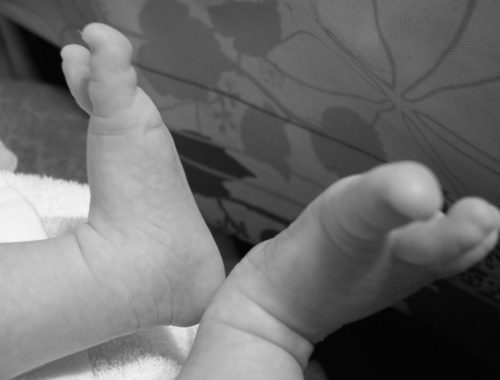Today’s guest post is from Melissa, a reader who grew up in the Independent Fundamental Baptist movement, but eventually left it with her husband. “Learning the Words” is a series on the words many of us didn’t have in fundamentalism or overly conservative evangelicalism– and how we got them back. If you would like to be a part of this series, you can find my contact information at the top.
Worldly – perhaps no word is quite so “fundamental” to the way hyper-fundamentalists view how they should or should not live as this one. During my upbringing in the independent fundamentalist Baptist movement (church, school, college), I heard this word used countless times, and always in a highly negative sense.
Simply put, worldly is defined by Webster’s as “of, relating to, or devoted to the temporal world: not religious or spiritual.” In our lingo, however, it was further defined as describing the things “the world” did and, conversely, things which “we” did not do. “The world,” by the way, is anyone outside of the IFB mindset. In short, wordly = bad, sinful, the opposite of Godly. The less worldly one is, the better, closer to God, more spiritual one is. The idea is based on Bible verses that say things like, “come out from among them and be ye separate,” and that Christians are “a peculiar people.” [Editor’s note: that particular example is a form of Dominionism, a common fundamentalist heresy.]
Almost anything could garner the adjective “worldly,” depending on who was talking about it, and what his or her personal beliefs were. I have heard the word applied to the following: clothing, hairstyles, music, amusement parks, malls, movies and movie theaters, TV and TV shows, education, government, books, jewelry, games, make-up, hobbies, jokes, magazines, and probably a few others I can’t remember right now. In utter defiance of Webster, worldly was also used to describe decidedly spiritual things like churches, Christians, preachers, and Bible translations other than ye olde KJV 1611.
Worldly was used to distinguish the “sinful” forms of these items from the “Godly” ones. For example, there were “worldly hairstyles” and “Godly hairstyles” – long hair on a man was worldly, as was extremely short hair on a woman. I remember the handbook for my Christian school containing a picture of a “Godly” male student’s hairstyle, which looked remarkably like the hair of all of the male characters on “Leave It to Beaver.” Jesus, apparently, could not have attended our school.
Many rules were created to keep us from becoming worldly. Flip-flops represented the hippie movement, so they were worldly. (I believe this led to rules about girls having to wear socks or hose—it makes it harder to wear hippie footwear!) Wire-rimmed glasses were worldly because John Lennon wore them. Black lipstick/nail polish was associated with the worldly Goths. Can’t use a standard deck of cards, even for solitaire, because that’s what worldly gamblers use. And worldly music, even Christian music . . . well I don’t even have time to get into that can o’ worms!
The avoidance of all things worldly, quite naturally led to some practical problems, such as where the line between worldly and godly should be drawn. I remember a friend in my church had never been to an amusement park, and had only been to a mall once or twice because, according to her father, those “are things the world does.” Even as steeped as I was in the IFB ideology at the time, I remember thinking, “but ‘the world’ also goes to grocery stores and eats food and drives cars, and we don’t think those things are wrong.” Another major problem, of course, is pride. Because so many worldly things were visible, we could tell at a glance how spiritual someone was. And because worldly = ungodly, the more worldly items we avoided, the more we could congratulate ourselves on how much better we were than “the world,” including those “worldly Christians.”
The first time I encountered the word worldly used in a positive light was just before graduating from my IFB college. I was with a guy (who is now my husband) at a bookstore and came across a slim volume in a black and gold dust jacket with the title Worldly Virtues by Johannes A. Gaertner.
HUH?
It seemed like an extreme oxymoron, akin to saying “holy devil” or something. We were intrigued and each picked up a copy and started reading right there in the store. The book is filled with one-page reflections on various aspects of being human. It covers such worldly traits as tact, perseverance, and commitment. From it I learned:
- that worry is “an eminently healthy, normal, and human trait.”
- that fear can be positive because “the person who knows no fear…is either incredibly stupid or harbors a secret death wish.”
- that discernment is a way to prevent “being manipulated day in, day out, virtually every waking hour of the day.”
We each bought a copy, and from that day I began to understand Webster’s second definition of worldly: “sophisticated or cosmopolitan.” Kind of like that most worldly of movie heroes, “Bond–James Bond.” Mr. Gaertner actually helped me reclaim a number of words that hyper-fundamentalists had perverted for their own use. Now, the label of worldly doesn’t make me cringe – it’s a label I strive to live up to.



